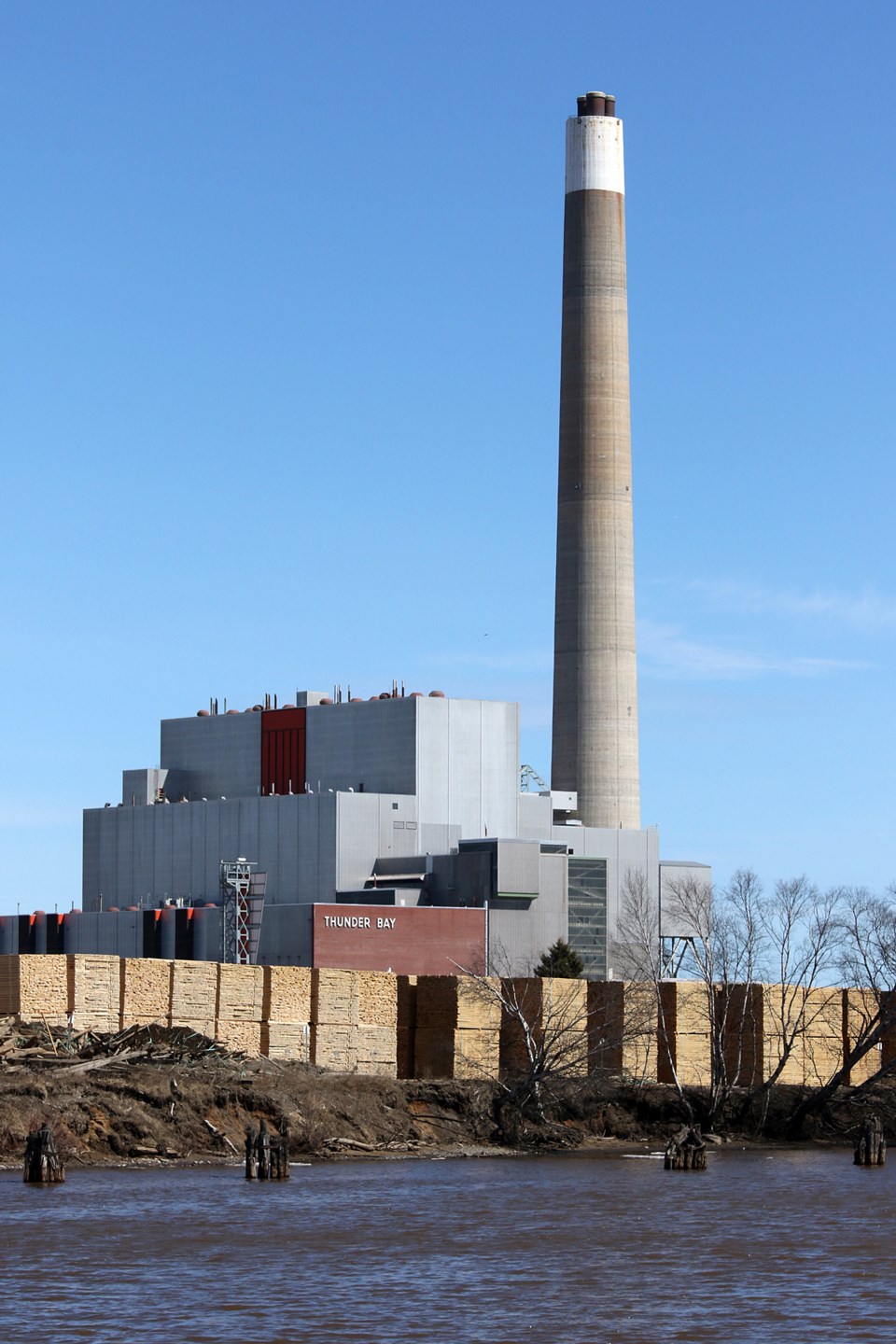THUNDER BAY -- The Thunder Bay Generating Station is going off the grid.
Ontario Power Generation and the Independent Electricity System Operator on Friday announced the Thunder Bay facility will be closed after significant corrosion to the boiler was found earlier this year, leaving the plant non-operational since late May.
Chris Fralick, chief operating officer for OPG's renewable generation, said the damage was "very extensive and very costly," prompting the power authority and the IESO to then start to consider the future of the station.
"Through those discussions, it was clear the demand in the Northwest and the prospects that the IESO did not foresee a need for the station beyond the end of its current contract, which expires in 2020," Fralick said. "Then it became a question of whether it made sense for us to spend the money to repair a unit that only would run for one more year."
Repairs to the station were estimated to take six months, at a cost of about $5 million.
Fralick said it was a "tough decision" to shut the plant down early but its closure would save Ontario electricity customers $40 million.
Northwestern Ontario Municipal Association president Wendy Landry said there is disappointment the decision was made to close the station without further discussion with regional leaders.
"We had requested a meeting with the minister of energy (Greg Rickford) to have the discussion and put forward our data and our information prior to any decisions being made," Landry said.
"Unfortunately, the decision has been made without that meeting."
The former coal plant, which was originally built in 1963, had been idled in 2014 when the previous Liberal government eliminated all coal-burning facilities. It had been converted to advanced biomass at a reported cost of $5 million.
Thunder Bay-Superior North Liberal MPP Michael Gravelle, who along with former Thunder Bay-Atikokan MPP Bill Mauro successfully lobbied for the plant's conversion to save it from closure, called it an incredibly disappointing decision. Gravelle also said he has been trying to get in contact with Rickford but had not gotten any calls back from the minister as of the early afternoon.
"Quite frankly, it doesn't reflect the fact that the Ontario Power Generation and Independent Electricity System Operator understand the long-term energy needs in the region," Gravelle said. "I think, as Common Voice Northwest has pointed out in many interactions with government, there are some incredible needs in the Northwest, particularly related to the mining sector. The Thunder Bay Generating Station certainly was going to be playing a large role in that as well."
In late 2015, auditor general Bonnie Lysyk released a report showing the generating station was producing electricity at a cost that was 25 times more expensive than other biomass facilities in Ontario. At the time it was expected to operate for only five days per year, employing 60 people full-time to produce 15,000 megawatts of electricity.
A statement provided by OPG said the station would only run for 2.5 days if repaired, based on past historical average annual operating days.
Fralick said the plant is a "capacity preservation option," which is used to support future potential demand but the long-term energy plan views the needs of the region as being able to be met without the station.
"The reality is the station has not been needed," Fralick said. "I think our utilization rate has been quite low over the last four years the contract has been in place. There are a number of factors associated with that but the reality is that the plant has not been needed to run very often."
Landry, who also criticized the previous Liberal regime for not guaranteeing the long-term future of the plant, said the energy task force has put together a lot of data and research that would support the plant remaining operational.
"We believe there are a lot of mines that are on the fringe of coming about and we know the need is going to be there when these mines come to fruition," Landry said. "It's unfortunate decisions are being made without any conversations or opportunities to meet with any of the new ministers."
Gravelle said he could not answer why their government had approved only a five-year contract for the station.
The majority of electricity in the region is supplied by 11 hydroelectric stations, which generate 690 megawatts of power.
Fralick said there are 70 people employed, who maintain the generating station and the Kakabeka, Silver Falls and Aguasabon hydroelectric stations. About 20 of those employees would be retained to be responsible for the nearby hydroelectric stations.
"None of the staff will be forced to leave OPG. They will all have an option to retain employment with the company," Fralick said.
"It just may not be here in the Northwest but they will be given that option."
Fralick said the closure does not have any impact on the Atikokan Generating Station, another former coal-powered plant that had been converted to biomass. The contract between OPG and the IESO for that facility runs until 2024.
The plant will now move into a decommissioning phase, which Fralick said will be a multi-year process to prepare it for its eventual demolition.
